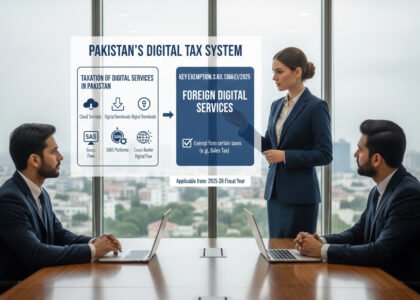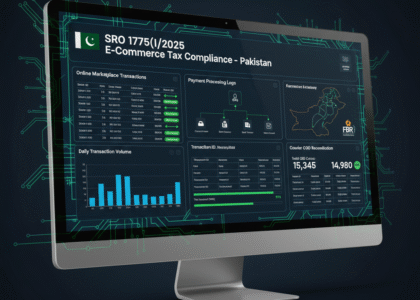SRO 1366(I)/2025 — Complete Guide to the Exemption on Digital Presence Proceeds Tax (With Practical Examples)
On 10 July 2025, the Federal Board of Revenue (FBR) issued SRO 1366(I)/2025 under Section


On 10 July 2025, the Federal Board of Revenue (FBR) issued SRO 1366(I)/2025 under Section

For many working professionals, the arrival of the salary slip can be a source of


Whether you are an individual taxpayer, a business owner, or part of a corporate structure,

A Legal & Tax Commentary Introduction Download original S.R.O. 1775(I)/2025 On 10 September 2025, the